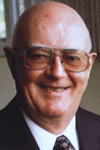Our Forgiveness Blog
Survival Kit Advice
I perused Wikipedia today for information on “survival kits.” Here are a few tidbits: salt (yup, it prevents death in case of cholera), laser pointer (for superior long-range signaling), large plastic trash bag (as a poncho), ladder (ladder, oh, sorry, this one is only for lifeboats).
Missing completely was one essential: Forgiveness.
As the world produces more injustice, we need a survival response to this. Forgiveness may be it. Forgive and live.
Robert
Independence Day for Those Who Bully
Do you know the film, Independence Day, from 1996? One of the characters, an alcoholic crop-duster, Russell Casse, played by Randy Quaid, kept insisting that he was abducted by aliens. No one was buying it. Once the aliens landed, he had his day by saying, “What did I tell you?” (Quoted from memory).
It is now our turn. No, we have not been abducted by aliens, but we have been speculating within our institute about Adam Lanza, the tragic figure who turned his own fury onto innocent children in a Connecticut school on December 14, 2012. We have been saying to each other that he himself in all likelihood was a victim of severe bullying.
A recent article in the New York Daily News (April 13, 2013) by Matthew Lysiak and Larry McShane supports the view that Mr. Lanza was a victim of bullying. According to this article not only was Mr. Lanza taunted but also beaten by fellow students when he attended Sandy Hook Elementary School. A relative of Mr. Lanza, who wished for anonymity in that article, gave this evidence of bullying: “Adam would come home with bruises all over his body,” the relative said. “His mom would ask him what was wrong, and he wouldn’t say anything. He would just sit there.” The mother considered suing the school because of this abuse that she suspected.
The one bullied transformed into the one who bullies, and even worse, into the one who kills.
For a moment, let us presume even with this news story that the accusations of bullying toward Adam Lanza are incorrect. Even so, there are thousands of children as I write this being bullied and bullied very abusively in schools.
How many of them will transform into the one who bullies?
We have to do something to protect the victims, yes, but what is rarely emphasized is this: We must find a way to quell the fury within those who bully. Their fury is what is abusing and in some cases contributing to the death of other students.
What did I tell you? We are suggesting this to the world: We strongly urge all school districts in the United States and abroad to develop comprehensive psychological programs to reduce the rage in those who bully. One source for school psychologists, counselors, and social workers is the Anti-Bullying Forgiveness Education Program available in the store section of this website. This curriculum targets the anger within those who bully.
Our research on forgiveness therapy and our research on forgiveness education shows that those with deep anger can reduce that anger statistically significantly.
It is time to quell the fury within—-for the sake of the next victim and for the sake of those who harbor the fury. We have the resources. Now let us all pull together and do our part not to let anger have its insistent upper hand. Let us start today and achieve Independence Day for those who bully—-independence from the binding torture of their own anger.
Robert
On Mercy: The Case of Mid-West Family Broadcasting
Mid-West Family Broadcasting, headed by Thomas Walker, has quietly stayed in the shadows, supporting the International Forgiveness Institute since 1990–for a generation. Readers, please note well that many philanthropists have a pattern of funding non-profit organizations for a few years and then moving on. This did not happen between Mid-West Family and IFI.
In 1990, I received a letter (email was not “on a roll” then as it is now) from William Walker, Thomas’ father. He told me that years ago he received a doctoral degree from my own department at the university. He said he now would like to give back to the social sciences and that he had the resources to put the psychology of forgiveness on the map.
Up to that point, the science of forgiveness was in its infancy. The very first scientific article on person-to-person forgiving was published by our

William Walker
group in 1989. (There had been a handful of studies on apology up to that point, but no science published on the issue of forgiving between and among people). William had a plan to advance the thinking in this area. With his help, we developed the first psychological instrument to measure person-to-person forgiveness ever published. We devised strategies to map out the process of forgiveness and tested these. One example of the fruit of William Walker’s philanthropy is a study of helping people in residential drug rehabilitation to forgive and thus to become emotionally healthier.

Thomas Walker
Under the care of Thomas Walker, the IFI has quietly built the most comprehensive set of curricular materials for teaching forgiveness in the world. The forgiveness curriculum guides have made their way to schools on every continent now. We at the IFI are personally shepherding the growth of forgiveness education in Madison, Wisconsin, Milwaukee’s central-city, Belfast, Northern Ireland and Liberia, Africa. We are making inroads in other war-torn and contentious regions of the world. We are doing so because of Mid-West Family Broadcasting.
Mid-West Family Broadcasting runs the following stations in Madison, Wisconsin: WJJO | WMGN | WJQM | WWQM | WMLV | WHIT | WOZN. They are in four other midwest markets as well.
We take the time here to acknowledge the mercy of Mid-West Family Broadcasting and the Walker family. You are making the world a more merciful place, a more forgiving place, because of your mercy. Thank you.
Robert
Spring Cleaning for Your Wounded Heart
…….if when you look inside, you are tired;
…….if when you look inside you do not like yourself anymore;
…….if when you look inside you find rust where you used to see sparkle;
…….if when you look inside you no longer find hope…….
Please know this…….
Forgiveness is your energizer;
Forgiveness is your self-esteem bolster;
Forgiveness is your emotional rust-inhibitor;
Forgiveness gives you hope.
Come, together, let us do some spring cleaning of your heart.
The first step is this: Commit to forgiving, to reducing resentment and offering goodness toward those who have cluttered the rooms of your heart.
The second step is this: Commit to doing no harm to those who have soiled your inner world and did not stay around long enough to clean up after themselves.
Forgiveness will be your servant. Forgiveness will make tidy the rooms of your heart.
Robert
The Mathematics of Forgiveness
When we are treated deeply unjustly by others, we have a tendency to be wounded in at least eight ways. First is the injustice itself. Second is the emotional reaction, such as considerable anger or frustration or sadness. Third, we sometimes feel shame because others are looking and wondering. Fourth, all of the above can make us tired. Fifth, we sometimes can’t stop thinking about what happened. Sixth, as we compare ourselves to the one who hurt us, we see ourselves as coming up short. Seventh, we sometimes have to make unwanted changes in our lives. And eighth, we drift into pessimism.
One injustice, eight wounds. Now, suppose one person hurt you deeply 20 times. That is 20 X 8 = 160 wounds you are carrying around inside of you.
Suppose further that 5 other people have hurt you 10 times each……just wait a minute., please….doing the math here……That is 400 more wounds. Adding the first person who hurt you to the other five who hurt you and look. You are carrying around at least 560 wounds inside of you.
Injustice has a way of making us round-shouldered if you think about it. But be of good cheer. Forgiveness properly practiced can eliminate most of these wounds, allowing you to stand up straight perhaps for the first time in years.
Do the math…..then please consider forgiving.
Robert



